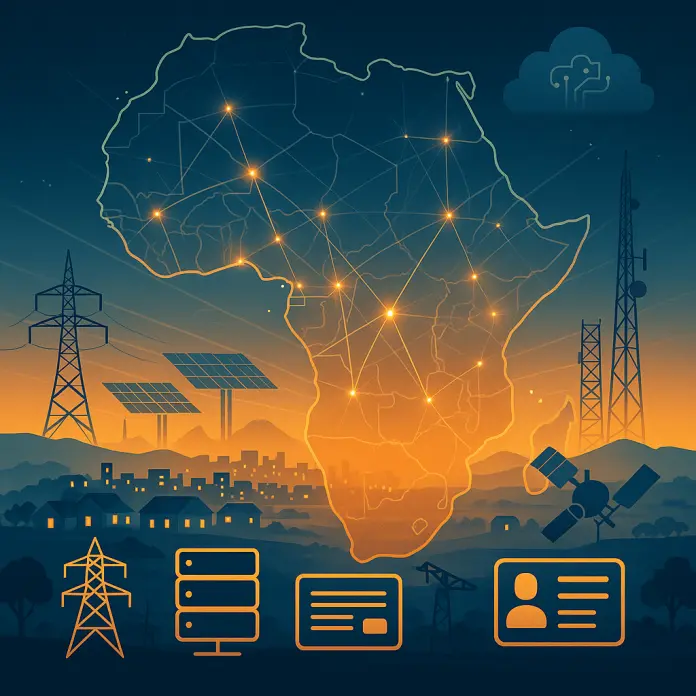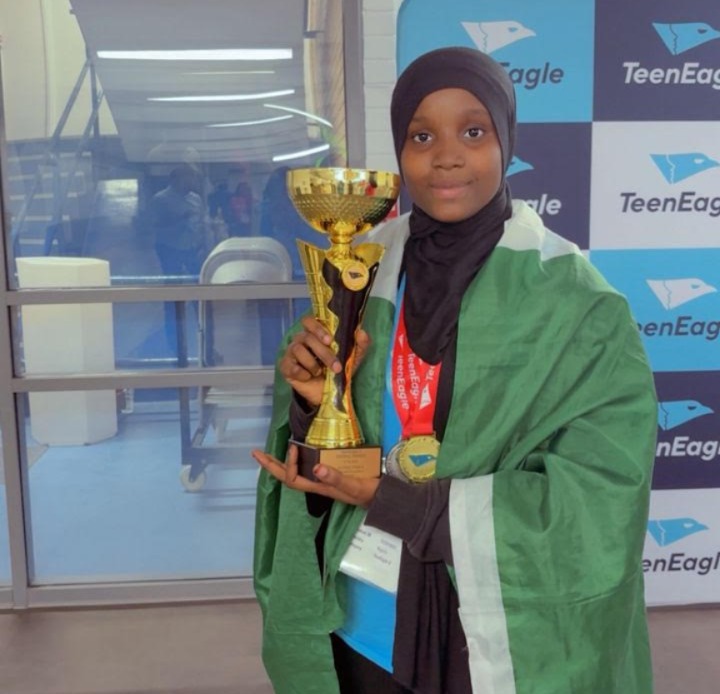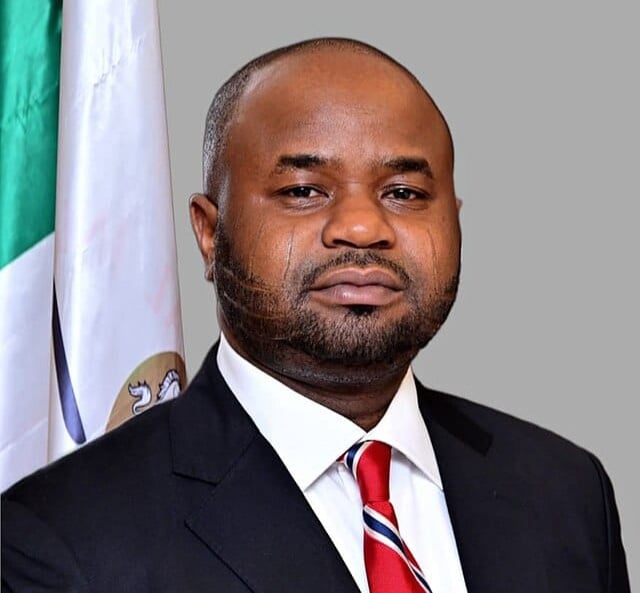Copyright ghanamma

Africa must take control of its digital destiny rather than allowing external forces to shape the continent’s technological identity, industry leaders emphasized at the MOBEX Africa Tech Expo and Innovation Awards 2025 in Accra this week. The annual gathering, now in its 10th year, brought together technology executives, financial regulators, and policymakers to confront fundamental questions about who controls African data, who profits from digital innovation, and whether the continent can build sustainable tech ecosystems without sacrificing sovereignty for convenience. Ibrahim Misto, Chief Digital Officer at MTN Ghana, delivered perhaps the conference’s most pointed message. For too long, he argued, Africa’s digital identity has been managed by others, leaving the continent vulnerable to external interests that may not align with African priorities or values. “We must take collective action to secure our data, infrastructure, and technological future,” Misto told attendees. He stressed that technology must reflect African culture, languages, and aspirations rather than simply importing solutions designed elsewhere and hoping they fit local contexts. MTN Ghana has backed its rhetoric with substantial capital commitments. The telecommunications giant has invested over $1 billion in network infrastructure since 2021, transforming from a traditional mobile operator into what Misto described as a comprehensive technology company. In 2025 alone, MTN allocated $140 million to expand 4G coverage and strengthen power network reliability. The investments support products like MoMo Business, a digital management tool for small and medium enterprises that has become central to Ghana’s financial inclusion efforts. MTN now serves over 17 million mobile money customers in Ghana, with the platform handling everything from basic transfers to sophisticated financial services including savings, loans, and insurance products. Beyond infrastructure, MTN is channeling resources into youth-focused technology programs, gaming partnerships, and artificial intelligence development initiatives designed to cultivate homegrown talent capable of building African solutions for African challenges. Matilda Asante-Asiedu, Second Deputy Governor of the Bank of Ghana, shifted the conversation toward privacy and data protection as non-negotiable foundations for digital transformation. She warned that while Africa’s digital economy expands rapidly, cyber threats and fraud are evolving just as fast, creating urgent security imperatives. “Privacy by design is not a feature, it is the foundation,” Asante-Asiedu emphasized. Digital payment systems and wallets must collect only necessary data and operate with explicit user consent, she insisted, pushing back against surveillance-heavy models that sacrifice privacy for convenience. The central bank official called for smarter security defaults, real-time transaction alerts, and industry-wide information sharing to detect and prevent fraud before it scales. She noted that cross-border payment efficiency remains a critical frontier, highlighting platforms like the Pan-African Payment and Settlement System and the proposed African Currency Integration Framework as tools to reduce dependency on foreign currencies while deepening regional liquidity. Asante-Asiedu warned that inclusion must not come at the cost of surveillance, urging policymakers and service providers to strike careful balances between innovation, user protection, and privacy. Her comments reflected growing concern that African markets might adopt invasive data practices from other regions without adequate safeguards tailored to local contexts and legal frameworks. Mohammed Adams Sukparu, Deputy Minister for Communications and Digitalisation, reaffirmed government commitment to positioning Ghana as a leading digital innovation hub in Africa. He argued that independence in the digital era depends fundamentally on controlling data systems and technological resources rather than relying on infrastructure and platforms owned and operated by foreign entities. Sukparu stressed that Africa’s digital transformation must extend beyond government policy to include genuine industry partnerships, local innovation, and community-driven solutions that reflect the continent’s values and needs. Without such holistic approaches, he suggested, African countries risk becoming mere consumers of technology rather than creators and owners. The conference discussions revealed tensions between competing visions of Africa’s digital future. One camp advocates rapid adoption of proven technologies from global tech giants, accepting some loss of sovereignty in exchange for faster development and wider access. The other insists that short-term convenience conceals long-term costs, including dependency, data exploitation, and technological colonialism that mirrors historical patterns. These debates occur against a backdrop of remarkable growth. Ghana now has over 38 million active mobile connections for a population under 35 million, reflecting widespread multiple SIM card usage. Mobile money transactions have exploded, with platforms like MTN’s MoMo handling billions of cedis in transfers, bill payments, and merchant purchases monthly. Yet infrastructure challenges persist. Fiber-optic cable theft and construction damage continue disrupting network stability, with MTN reporting hundreds of fiber cuts annually that hamper service quality in affected areas. Power reliability remains inconsistent, forcing telecommunications companies to invest heavily in backup systems that might be unnecessary with more stable electricity supply. The African fintech market is projected to reach $230 billion by 2025, creating enormous opportunities for entrepreneurs, small businesses, and underserved populations. Digital finance has proven transformative for women entrepreneurs and informal traders who previously lacked access to formal banking services. But rapid growth also brings risks. Fraud schemes evolve quickly, exploiting trust in mobile money platforms and targeting users with limited digital literacy. Cybersecurity remains underdeveloped across much of the continent, leaving systems vulnerable to sophisticated attacks that could undermine confidence in digital services. MOBEX Africa continues serving as a major platform for showcasing technological innovation, fostering dialogue between government and industry, and recognizing excellence in Africa’s fast-evolving digital landscape. The expo runs through October 10 at the Kempinski Hotel Gold Coast City in Accra, featuring exhibitions, panel discussions, and the presentation of innovation awards recognizing achievements across 22 categories. This year’s awards target accomplishments made between January 2024 and June 2025, covering areas including fintech, health, education, agriculture, governance, mobile applications, cybersecurity, sustainability, and digital campaigns. Winners will be announced at the conference’s closing ceremony, celebrating innovations that organizers say are shaping Africa’s technological sovereignty and global digital leadership. The conversations unfolding in Accra this week suggest African leaders increasingly recognize that digital transformation isn’t simply about adopting new technologies. It’s about who controls those technologies, who benefits from the data they generate, and whether African institutions can build systems that serve African interests first. Whether the continent can translate that recognition into concrete action, backed by sustained investment, regulatory reform, and genuine coordination across borders, remains the defining question. The stakes couldn’t be higher, as decisions made now will likely determine whether Africa participates in the digital economy as an equal partner or remains perpetually on the periphery.



